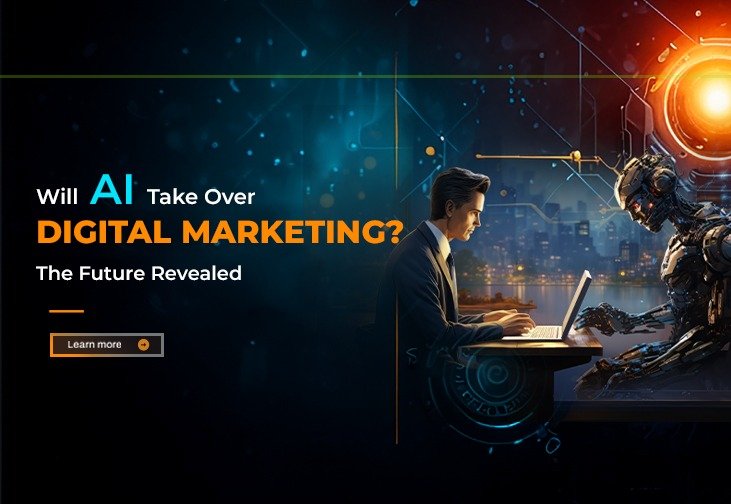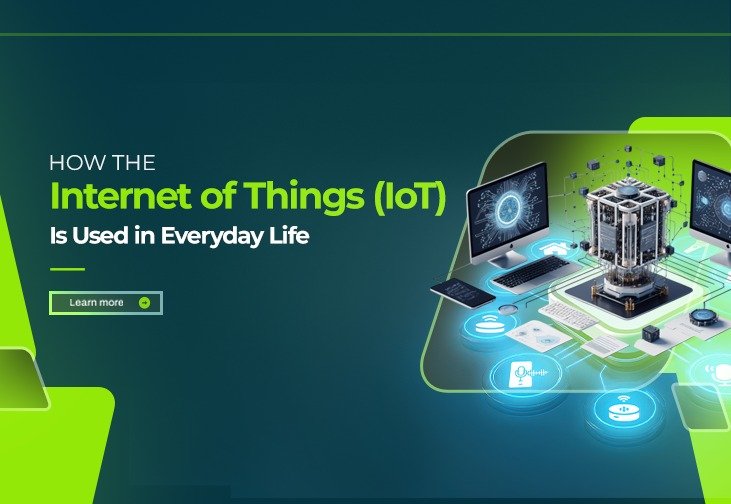The digital marketing world is evolving at a rapid pace, and artificial intelligence (AI) is one of the driving forces behind this transformation. From predictive analytics and automated content creation to personalized recommendations and intelligent chatbots, AI is already playing a significant role in shaping how brands interact with their customers. But this raises an important question: will AI eventually take over digital marketing entirely? To understand this, we must examine both the capabilities of AI and the essential human elements that still drive creativity, strategy, and emotional connection in marketing. As algorithms become smarter and more efficient, marketers are facing new possibilities—and new challenges. The future of AI in digital marketing is not a simple story of machines replacing humans, but a complex narrative of collaboration, adaptation, and balance. In this blog, we will explore how AI is currently impacting digital marketing, what the future might hold, and where humans still matter most.
Understanding the Present Role of AI in Digital Marketing
To begin with, AI is already deeply embedded in many areas of digital marketing. Search engines use AI to deliver relevant results. Social media platforms rely on AI to curate newsfeeds, target ads, and recommend content. E-commerce websites use it to personalize shopping experiences, while email marketing tools use AI to analyse open rates and optimize send times. In essence, AI is helping marketers make smarter decisions by analysing massive volumes of data quickly and accurately. AI tools like natural language processing (NLP) and machine learning are also used to generate content, segment audiences, and predict consumer behaviour with impressive precision. But while these tasks are increasingly automated, they still require human oversight and strategic thinking. The current relationship between AI and digital marketing is not about replacement—it’s about enhancement.
Will AI Replace Human Marketers?
Despite AI’s capabilities, the idea that it will fully replace human marketers oversimplifies the reality. While AI can analyse data and automate processes, it lacks emotional intelligence, creative intuition, and the cultural understanding necessary to build authentic connections with audiences. Crafting a compelling brand story, responding empathetically to customer needs, or designing a campaign that resonates with a specific demographic—these are areas where human input remains irreplaceable. Human marketers bring imagination and empathy, elements that algorithms cannot replicate. Moreover, AI tools still depend on human-defined goals, inputs, and adjustments to perform effectively. The future of AI in digital marketing is not about one side winning over the other—it is about synergy. AI handles the “what” and “how,” but humans must still define the “why.”
How AI Is Transforming Digital Marketing Functions
AI is revolutionizing several key functions in digital marketing. In customer service, AI-powered chatbots provide instant support, answer FAQs, and assist with purchases. These bots can operate around the clock and handle thousands of conversations simultaneously. In advertising, AI helps marketers target the right audience at the right time through programmatic ad buying, which increases efficiency and reduces costs. AI-driven analytics tools also play a critical role in measuring campaign performance, helping marketers understand what works and what doesn’t. Content generation is another area where AI is making waves. Tools can now produce blog outlines, social media captions, and even product descriptions at scale. Yet, while these outputs may be grammatically correct and data-informed, they often lack the nuance and originality of human-crafted content. This shows how AI assists, rather than replaces, human marketers in content creation.
The Human Advantage in the Age of AI
Even as AI becomes more powerful, the human touch remains essential in marketing. Emotional storytelling, cultural sensitivity, and ethical decision-making are areas where machines fall short. Human marketers understand context, tone, and timing in a way that AI still cannot match. They can navigate complex brand identities and social dynamics, which is especially important in today’s diverse and global digital landscape. Additionally, humans are better equipped to handle unexpected challenges, such as public relations crises or rapidly shifting consumer sentiments. Creativity—a core driver of successful marketing campaigns—also remains a distinctly human trait. While AI can suggest headlines or generate visual layouts, it doesn’t possess the originality or vision that human designers, writers, and strategists bring to the table. This highlights that the future of AI in digital marketing lies in a complementary relationship where humans lead the narrative and AI supports the execution.
Preparing for the Future: Skills Marketers Must Develop
As AI continues to integrate into digital marketing workflows, professionals must adapt. Marketers of the future will need a strong understanding of how AI tools work, not necessarily at a technical coding level, but in terms of practical application. Skills like data interpretation, AI tool management, and ethical use of automation will become increasingly important. Marketers should also focus on strengthening uniquely human skills—creative problem-solving, storytelling, emotional intelligence, and strategic thinking. These are qualities that cannot be replaced by algorithms. In many ways, the rise of AI demands that marketers become more interdisciplinary, blending technology with humanities. The future of AI in digital marketing will favour those who can bridge the gap between machine capabilities and human insight.
Ethical Considerations of AI in Marketing
The growing use of AI in marketing also raises significant ethical questions. Issues related to data privacy, algorithmic bias, and manipulation through hyper-personalized content must be addressed thoughtfully. Marketers must ensure that their use of AI respects consumer rights and promotes transparency. Blindly trusting algorithms can lead to unintended consequences, such as reinforcing stereotypes or compromising user trust. Therefore, ethical oversight must be an integral part of AI implementation in digital campaigns. Building consumer trust in the age of AI involves clear communication about how data is used and ensuring that automation serves users rather than exploits them. Ethical responsibility is one area where human judgment cannot be outsourced.
Real-World Examples of AI-Driven Marketing
Many major companies are already leveraging AI in creative and impactful ways. Netflix uses AI algorithms to recommend shows based on viewing behaviour, increasing user engagement and satisfaction. Amazon applies machine learning to personalize product recommendations and streamline logistics. Coca-Cola has used AI tools to analyse social media conversations and create campaigns that align with emerging trends. These examples show that AI can be a powerful tool for understanding customers and responding to market changes. However, behind each of these AI-driven strategies are teams of human marketers making decisions, interpreting results, and fine-tuning campaigns. The collaboration between machine intelligence and human creativity is what makes these efforts successful. The future of AI in digital marketing will likely see more such hybrid models where efficiency and empathy go hand in hand.
The Road Ahead: What Does the Future Hold?
Looking forward, the role of AI in digital marketing will continue to expand. Predictive analytics will become more precise, real-time personalization will become the norm, and voice or visual search technologies will reshape how consumers interact with brands. AI will help marketers create more relevant and engaging experiences at scale. However, this future is not a takeover—it is a transformation. Human marketers who adapt, learn new skills, and embrace AI as a tool rather than a threat will thrive. As automation handles repetitive tasks, humans will have more time to focus on strategy, innovation, and relationship-building. The future of AI in digital marketing is ultimately about empowerment, not replacement.
Final Thoughts
AI is undeniably changing the digital marketing landscape, but it’s not here to eliminate human creativity or strategy. Instead, it offers tools that, when used responsibly and intelligently, can elevate the work of marketers. The key to succeeding in this evolving environment lies in collaboration—between humans and machines, data and intuition, automation and emotion. The future of AI in digital marketing depends not just on technological advancements but on how we choose to use them. Will AI take over digital marketing? Not entirely. But it will reshape it, and those who embrace this change will lead the way into the next era of intelligent marketing.



